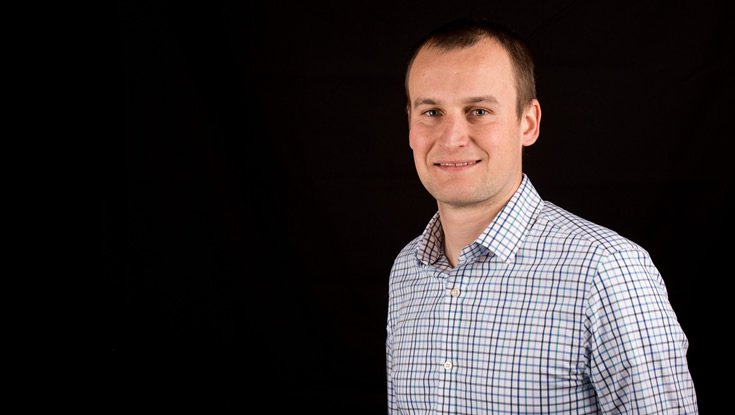
Dr Eoin O’Cearbhaill, CÚRAM Investigator based at the School of Mechanical and Materials Engineering at University College Dublin, whose Medical Devices Design Group will work with the company
Neograft, a Boston based medical technology company has teamed up with CÚRAM, the Science Foundation Ireland Centre for Research in Medical Devices, to develop a novel manufacturing method for coronary bypass devices. Based at NUI Galway, CÚRAM has over 250 researchers engaged in current projects, both in collaboration with industry and on blue-sky research.
Coronary artery bypass grafting (CABG) is a type of surgery that improves blood flow to the heart and is used to treat people who have severe coronary heart disease (CHD). This type of surgery, which typically uses veins to create bypass grafts for the heart, is currently the best option for most patients with CHD. Outcomes can however be compromised by the mechanical and biological limitations of veins typically used to create the bypass grafts.
Dr Eoin O’Cearbhaill, CÚRAM Investigator based at the School of Mechanical and Materials Engineering at University College Dublin, whose Medical Devices Design Group will work with the company, explains that despite their widespread use, vein grafts continue to fail at high rates. “Many of these grafts can become obstructed in the first year and the failure rate can be up to 50% within five to ten years,” he says.
Neograft Technologies, Inc. has developed a product called Angioshield™, which offers a new option for treatment of coronary artery disease and promises to improve vein performance and longevity in CABG outcomes.
“Our Angioshield technology creates a support layer around the vein using a proprietary polymer network to improve both the strength and uniformity of the vein graft,” explains Jon McGrath, from Neograft’s CEO. “The device supports the vein without deforming its natural shape and allows nutrients and new cells to migrate into and through the support layer. Over time, new, stronger tissue develops around and within the scaffold, while the polymer that it’s made from weakens, allowing the new tissue to be exposed to its normal environment, which favours the development of stronger, more functional tissues.”
Dr O’Cearbhaill’s research team will work with Neograft Technologies, Inc. and seek to use advanced manufacturing methods to develop a next-generation product.
CÚRAM’s goal is to develop affordable solutions for patients suffering from chronic illnesses like CHD,” says NUI Galway’s Professor Abhay Pandit, Scientific Director of CÚRAM. “This project is another example of how we are partnering with industry to do this, using world class research expertise to allow our industry partners to expand and develop their product ranges to provide the ultimate benefit to the patient” he says.
CÚRAM brings together strands of biomedical science which have come of age over the last decade including glycoscience, biomaterials science, regenerative medicine and tissue engineering, drug delivery and medical device design.
CÚRAM has six academic partners including UCD, Trinity College Dublin, University of Limerick, University College Cork, The Royal College of Surgeons Ireland and NUI Galway.